As I mentioned in the previous post, several colleagues have enthusiastically recommended Lona Kozik’s theory courses to me over the past couple of years, but it wasn’t until I read a blog on her site titled “Why I like the ABRSM Grade 6 Theory exam” that I got really curious about her.
I love music theory, but I certainly didn’t learn to love it by slogging my way through ABRSM’s Music In Theory In Practise books. Indeed, like so many of us, I only did it because it was a requirement to continue through ABRSM’s grades.
ABRSMs Grade 6 Theory exam is substantially different to Grades 1-5. And having talked it through with Lona, I kinda wanna study it myself!
I’ll post the full interview soon. In this preview she explores the strengths of the exam syllabus and makes a real case for learning its material.
Find out more about Lona’s course ‘Mastering Grade 6 Music Theory: Composition, Harmony, and Analysis’.
Transcript
Garreth
I was fascinated to read about how much you like the ABRSM grade six theory exam. I'm really curious what you like about it. Can you explain?
Lona
Yes, I can explain, and it surprises me as well, because I'm not someone who usually is into the grades, either for piano, which I also teach, or for theory. If a student wants to do it, great, if they're ready, we'll do it, but I'm not one to chase it. When I very first started teaching theory online, I did my very first course and then people said to me, please, will you do a grade six course?
I thought, oh, how interesting. And I thought, why? I got it from more than one person. So I thought, okay, this must be some kind of thing. So I get a grade six pass paper and I open it and I was like, Oh, that's why.
In a nutshell, I think I really value students learning by doing. I love the way the first three questions are composition based. And they're asking you to demonstrate your deep understanding of the language through using it.
The first question is harmonizing a melody, and you have to choose chords. That seems pretty simple, pretty straightforward. But you also have to choose inversions.
That's essentially writing a bass line. And it has to be a good one.
It can't just be random. Depending on the style of the melody. Certain inversions you want to stay away from unless they're being used specifically for something. It's wonderful that we're actually making a bit of music, but we're diving very deep into the language.
And that's all music theory ever is. It's observing a musical language and codifying it, so that if you want to write in that style, or if you're playing that music, you can unpack all the details of that music.
Then you go on to the second question, which is four part writing. and soul of classical music, classical with a lowercase c, of course, because this is what all composers of the style trained with, and still do in certain places.
You're given a baseline with. Some figures under it. Now you're not choosing the harmonies. They're chosen for you. The baseline is written and you have to realize the soprano. You have to write a good soprano line. Fill in the inner parts alto and tenor, and use good voice leading.
So you're diving, you're digging down. Even deeper, which is so much fun. And the way that I teach it, I tend to avoid handing over a list of avoid this, do that. We get there in the end. I give enough that we can get started. And then every week we look at what people have written and we talk about it.
People will remember things that way and they'll remember the reasons why something is Not what you want to do. Maybe more like this kind of thing I think of it as like painters. I don't know anything about painting but I know like I sometimes watch and don't even make mistakes on a canvas. They'll just paint over it.
Yeah, well and it's like these layers And that makes the painting. Without those layers, you don't get that painting. It's almost like building up this picture of what is the heart of classical music. How does this harmony really move? How does it make drama?
How does it make us feel anything? And we go on to the third question, which I think is the hardest, and people do call that the composition question. You're given an opening melody and you have to finish it. You have to do, between 8 and 12 bars for a particular instrument, so you've got to know that instrument, you've got to know a little bit about orchestration.
I just think taking people through that progression really allows for a deep engagement that other types of examination kind of don't, that's why I love it because you can really get into the nitty gritty of things and you can really understand what music theory is about in a meaningful way.






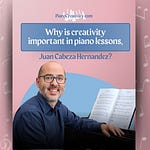

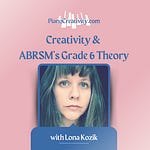

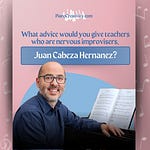
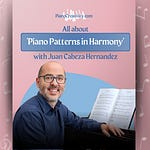
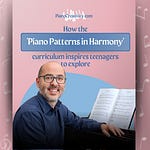
Share this post